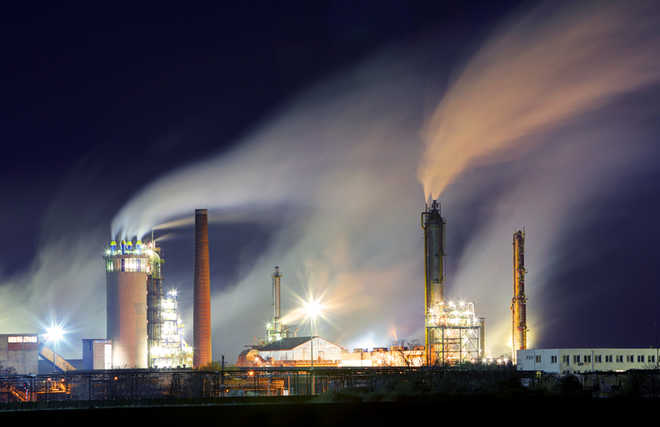
Photo source: Thinkstock
New Delhi, June 27
The number of premature deaths due to outdoor air pollution is projected to rise, mainly in developing Asia, including India, from 3 million at present to 4.5 million by 2040, if energy sector fails to take greater action to curb emissions, a study has said.
Each year, an estimated 6.5 million deaths are linked to air pollution and the number is set to increase significantly in coming decades unless the energy sector takes greater action to curb emissions, the International Energy Agency (IEA) said in its World Energy Outlook (WEO) special report which was released today.
(Follow The Tribune on Facebook and Twitter @thetribunechd)
Noting that emission was continuously declining in industrialised countries, the study said while in China, recent signs of decline are consolidated, emissions are generally on the rise in India, Southeast Asia and Africa as the expected growth in energy demand "dwarfs" the policy efforts related to the air quality.
Stressing that energy was the main contributor to air pollution that kills millions each year, the IEA report said that a 7 per cent increase in energy investment could cut death toll significantly.
"Each year an estimated 6.5 million deaths are linked to air pollution with the number set to increase significantly in coming decades unless the energy sector takes greater action to curb emissions.
"Premature deaths from outdoor air pollution are projected to rise from 3 million today to 4.5 million by 2040, concentrated mainly in developing Asia," the IEA report said.
IEA strategy based on existing energy technologies and policies can cut 50 per cent of pollutant emissions, the fourth-largest threat to human health, by 2040.
It, however, said premature deaths from household air pollution will decline from 3.5 million to 3 million over the same period, although they continue to be heavily linked to poverty and an inability to access modern energy.
Highlighting the links between energy, air pollution and health, the study also identifies contributions the energy sector can make to curb poor air quality, the "fourth-largest threat" to human health, after high blood pressure, poor diets, and smoking.
"In the central outlook of the WEO special report, growing attention to this issue and an accelerating energy transition post-COP21 puts global emissions of these pollutants on a slowly declining trend to 2040.
"However, the problem is far from solved and global changes mask strong regional differences: emissions continue to fall in industrialised countries. In China, recent signs of decline are consolidated.
"But emissions generally rise in India, Southeast Asia and Africa, as expected growth in energy demand dwarfs policy efforts related to air quality," it said.
A recent OECD report had said that air pollution could cause 6-9 million premature deaths by 2060, with India and China facing threat of maximum number of such mortalities.
A clean air scenario demonstrates how energy policy choices backed by just a 7 per cent increase in total energy investment through 2040 produce a sharp improvement in health.
"Under such a scenario, premature deaths from outdoor air pollution would decline by 1.7 million in 2040 compared with our main scenario, and those from household pollution would fall by 1.6 million annually," the report said.
Air pollution is a problem felt around the world, particularly the poorest in society and 80 per cent of cities that monitor pollution levels fail to meet the air quality standards set by the World Health Organisation (WHO).
The study said energy production and use – mostly from unregulated, poorly regulated or inefficient fuel combustion – are the most important man-made sources of key air pollutant emissions - 85 per cent of particulate matter and almost all of the sulphur oxides and nitrogen oxides.
It said millions of tonnes of these pollutants are released into the atmosphere each year from factories, power plants, cars, trucks, as well as the 2.7 billion people still relying on polluting stoves and fuels for cooking (mainly wood, charcoal and other biomass).
The IEA report said that actions to deliver access to clean cooking facilities to an additional 1.8 billion people by 2040 are essential to reduce household emissions in developing countries, while emissions controls and fuel switching are crucial in power sector.
Overall, it said that the extra impetus to the energy transition means that global energy demand is 13 per cent lower in 2040 than otherwise expected and of the energy that is combusted, three-quarters is subject to advanced pollution controls, compared with only around 45 per cent today. — PTI



























